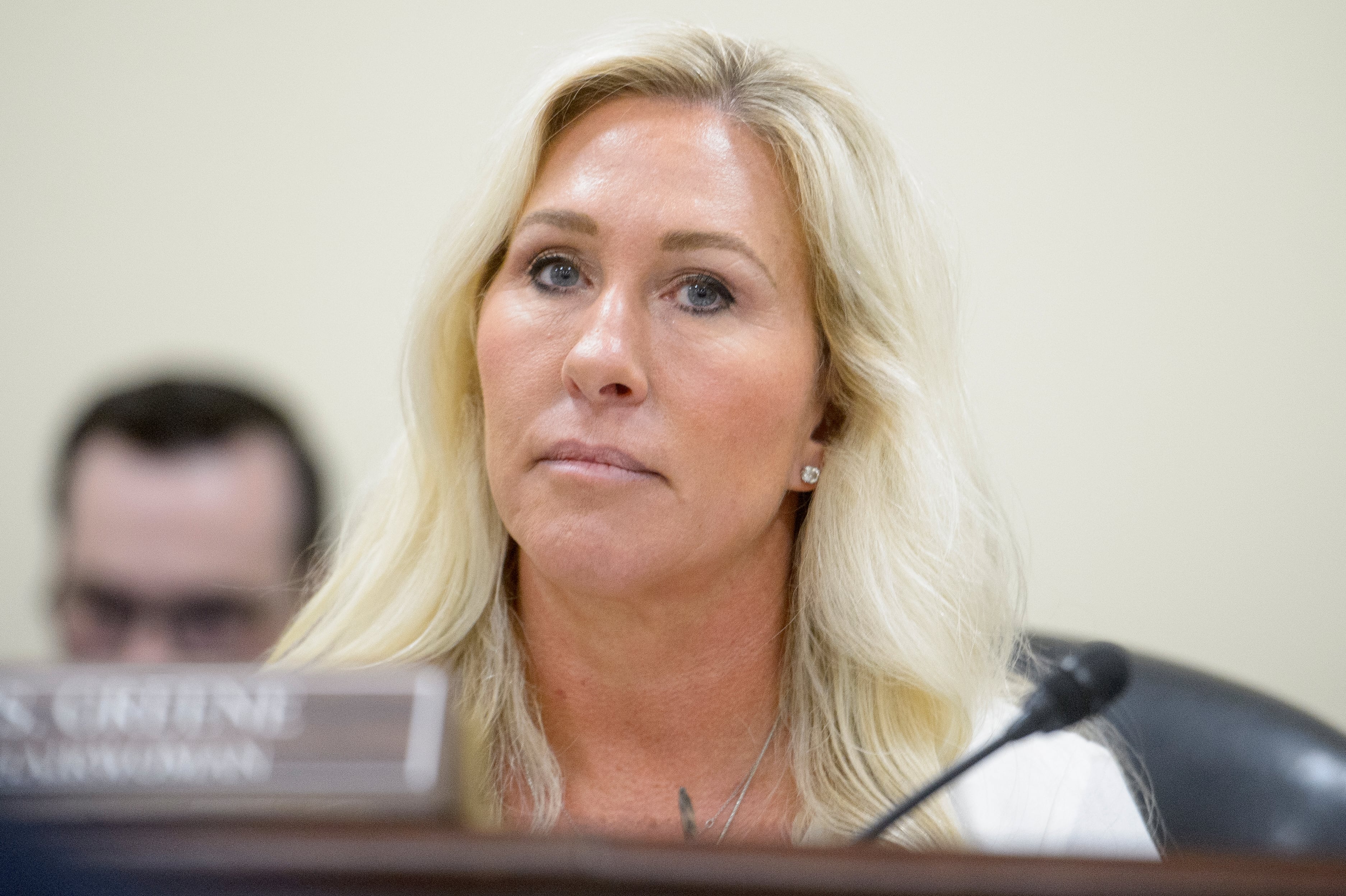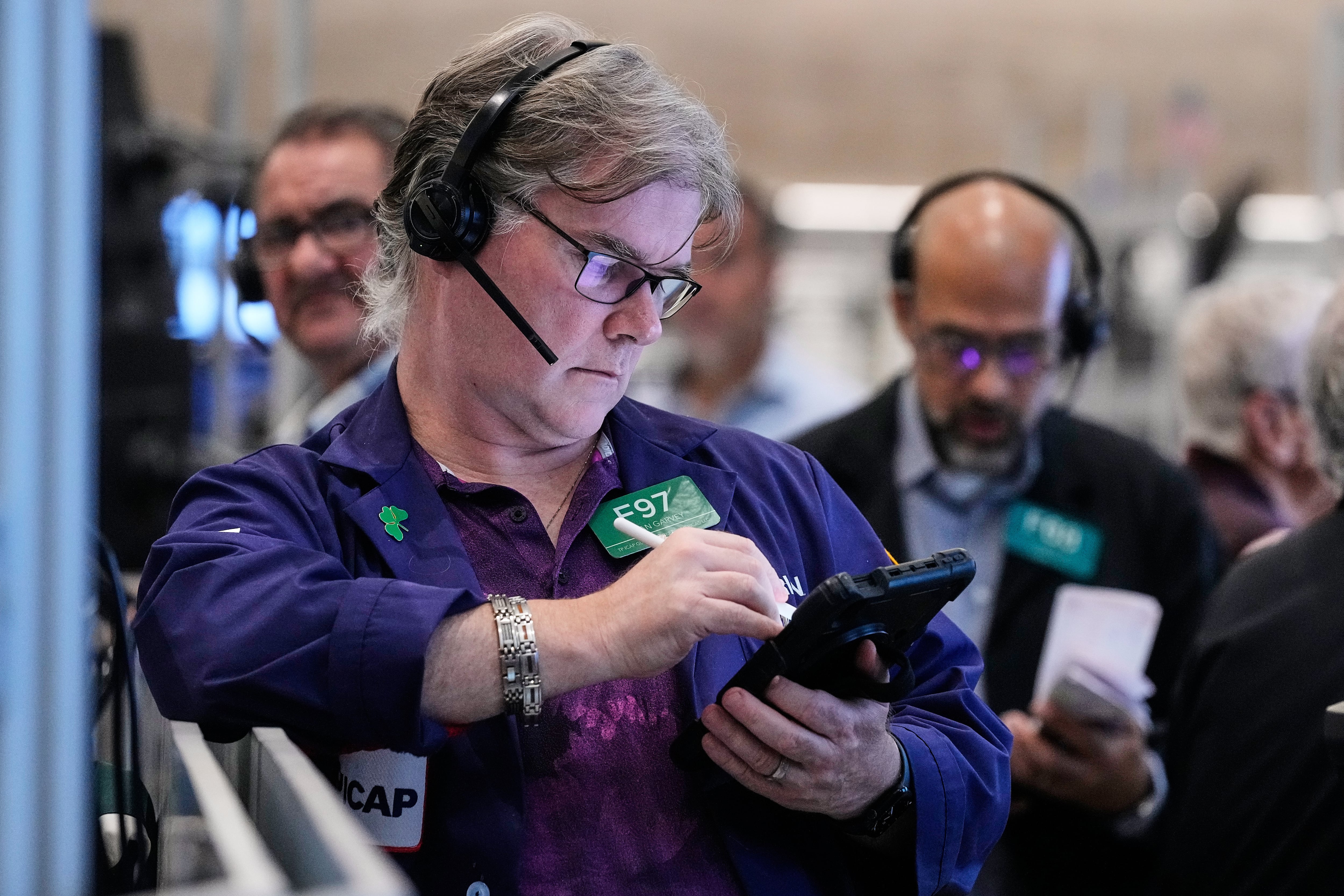NEW YORK (AP) — As stocks tanked on tariff fears, Marjorie Taylor Greene showed her faith in the president not just with words but dollar bills.
The Republican congresswoman, an avid supporter of the Trump administration's trade policies, not only bought stocks last week as others dumped them in a panic — she scooped up some of the biggest losers.
Lululemon, Dell Computer, Amazon, the parent of Restoration Hardware and a few others hit hard by Trump's tariff threats were down 40% on average late last week when she pounced.
Data from a required three-page financial holdings document doesn't disclose exactly how much she paid for the stocks, only ranges and dates.
But however much she spent, some of her bets are working out so far, at least as of Wednesday's close.
RH, formerly called Restoration Hardware, is Greene’s clear winner. It jumped more than a third since since Friday's close when she bought it after a stunning collapse in price that shook even the head of the furniture retailer.
“Oh, sh…!,” said RH CEO Gary Friedman in a conference call last week as the stock plunged.
Dell has jumped 9% since Greene bought the stock last week after it had lost more than half its value.
Lawmakers from both major parties have proposed bills banning members from stock trading because of the apparent conflict of interest in owning shares of companies they can heavily influence with positions they can take in office.
But none of the clunkily named bills -- The Transparent Representation Upholding Service and Trust in Congress Act, for instance -- has been passed. A new bill, The End Congressional Stock Trading Act, was proposed last month.
Asked whether she made the stock purchases herself and about possible conflicts of interest, Greene said in a statement: “I have signed a fiduciary agreement to allow my financial advisor to control my investments. All of my investments are reported with full transparency.”
The MAGA supporter has been outspoken in her support of Trump’s tariffs.
“Tariffs are a powerful proven source of leverage to protect our national interests,” she posted on X earlier this year, adding “We will win this trade war.”
Investors are not completely convinced.
After surging on Wednesday when Trump called a partial halt to the import taxes, stocks were heading down again Thursday.
The mighty heft of Amazon is pulling the U.S. stock market higher. The S&P 500 rose 0.6% Friday, erasing some of its slump from the day before and pulling closer to its all-time high set on Tuesday. The index is on track to close a third straight winning week and a sixth straight winning month, which would be its longest monthly winning streak since 2021. The Dow Jones Industrial Average added 65 points, and the Nasdaq composite climbed 1.1%. Amazon led the way after delivering a much bigger profit than analysts expected. Treasury yields eased a bit in the bond market.
President Donald Trump said he has decided to lower his combined tariff rates on imports of Chinese goods to 47% after talks with Chinese leader Xi Jinping on curbing fentanyl trafficking.
The Federal Reserve cut its key interest rate Wednesday for a second time this year as it seeks to shore up economic growth and hiring even as inflation stays elevated. The move comes amid a fraught time for the central bank, with hiring sluggish and yet inflation stuck above the Fed’s 2% target. Compounding its challenges, the central bank is navigating without much of the economic data it typically relies on from the government. The Fed has signaled it may reduce its key rate again in December but the data drought raises the uncertainty around its next moves. Fed Chair Jerome Powell told reporters that there were “strongly differing views” at the central bank's policy meeting about to proceed going forward.
The Federal Reserve will almost certainly cut its key interest rate on Wednesday and could signal it expects another cut in December as the central bank seeks to bolster hiring. A cut Wednesday would be the second this year and could benefit consumers by bringing down borrowing costs for mortgages and auto loans. Since Fed chair Jerome Powell strongly signaled in late August that rate cuts were likely this year, the average 30-year mortgage rate has fallen to about 6.2% from 6.6%. Still, the Fed is navigating an unusual period for the U.S. economy and its future moves are harder to anticipate than is typically the case.
Stocks are rallying toward more records ahead of a week packed with potentially market-moving events. The S&P 500 rose 1% Monday. The Dow Jones Industrial Average added 224 points, and the Nasdaq composite jumped 1.7%. Stocks also climbed in Asia ahead of a meeting on Thursday between the heads of the United States and China. The hope is that the talks could clear rising tensions between the world’s two largest economies. This upcoming week will feature profit reports from some of Wall Street's most influential companies and a meeting by the Federal Reserve on interest rates. Gold fell back toward $4,000 per ounce.
U.S. and Chinese officials say a trade deal between the world’s two largest economies is drawing closer. The sides have reached an initial consensus for President Donald Trump and Chinese leader Xi Jinping to aim to finalize during their high-stakes meeting Thursday in South Korea. Any agreement would be a relief to international markets. Trump's treasury secretary says discussions with China yielded preliminary agreements to stop the precursor chemicals for fentanyl from coming into the United States. Scott Bessent also says Beijing would make “substantial” purchases of soybean and other agricultural products while putting off export controls on rare earth elements needed for advanced technologies.









